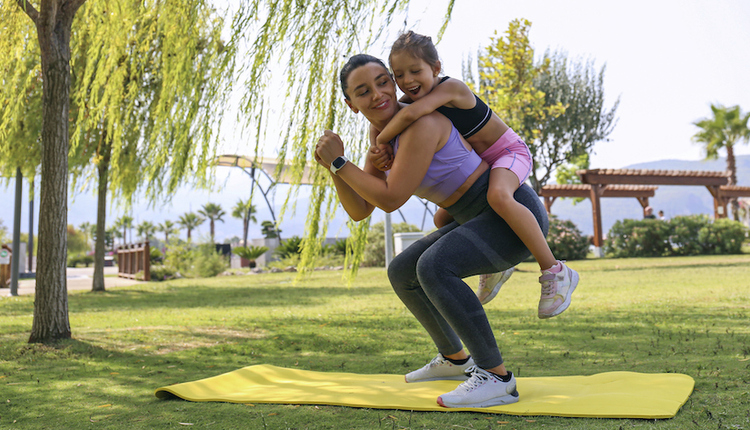Few people have the experience of really being listened to. So it is truly a gift when it happens. As experts in our field, it could probably be said that we spend very little time listening and most of our time talking. We educate, train and give advice based on our years of expertise. People come to us for our knowledge, right?
This is true, of course. But when we, as health and fitness professionals, are at our "expert best," we are, in fact, doing just the opposite. So, listen; hear what is being said; read between the lines; check for understanding; reflect what we are hearing in a meaningful way; and view clients as the experts in their lives in order to help them come up with their own answers for change. When we listen well first, we can determine what learning, if any, needs to take place. And by listening, we can save our voices, time and energy while we are demonstrating concern, building trust and building confidence for our clients, members or patients.
The Art of Listening Well
Professionally trained wellness coaches are experts in their fields. However, they wear their "expert" hat sparingly. To do so often requires a huge paradigm shift. After years of talking, it can be difficult for fitness professionals to sit back and let go of their ingrained belief that they must pass on everything they know, or what they think a client needs to know, in order to effect positive change. But it is learning to listen well and asking open questions that are the basic skills at the very heart of coaching. In fact, after gaining insight regarding the client's individual situation by listening, the "just in time learning" has much more impact and relevance.Though listening well seems simple enough, this skill is often much harder than it appears and requires a lot of practice. Many people, including our helping profession, believe they are good listeners. But I challenge you to see if you can hear yourself in any of the following common responses or reflections, which are less than effective for engendering trust, rapport and open communication. All of the responses are based on the premise that an individual has come to you upset over an incident or an idea. Also, assume the responses are said in a caring way, even though they are not the ideal responses:
"I know what's best for you" reflection: "Yeah, that is upsetting. But you know, you really should get over it. You need to let go of that. It's in the past."
"My story is far more interesting" reflection: "I had something happen like that to me once, and you won't believe what happened..."
"My opinion (editorial) of the situation is more important than your opinion" reflection: "I think that is the best thing that ever happened to you…" (What do they think about it?) "What's wrong with you?" reflection: "That's upsetting, but what were you thinking? Don't you know…? Why didn't you…?"
"I'd like to get on my soapbox" reflection: "I hear you. I can't believe it. They are something else. If I've heard it once, I've heard it a million times."
"I have an agenda for you" reflection: "That's upsetting, but you know what you really need to do is…"
All of the above responses reflect someone who is listening, but the focus has turned back to them. The most effective responses are ones that follow some simple rules:
Be calm, present and focused, giving your full attention. We convey concern, warmth and empathy when we listen well. Be a calm, focused presence. Instead of thinking about what you want to say next, what you think they need to hear, what story you need to tell or even thinking about what you need to be doing rather than listening, hear what is being said. Listen deeply to get a clear, full picture of their experience with the balanced use of open questions and reflections.
Ask open questions to fully understand and get more details. This is a way to engage someone and find out more about his/her experience. An open question is one in which the answer is more than just one word, such as yes or no. For example, when asking a friend, a child, a spouse or client about his or her day, ask something specific: "What was the best part of your day?" Or, "What was the most interesting thing you learned today?" Asking these kinds of questions will elicit more of a response versus asking the closed question, "How was your day?" to which the answer is usually a general, "Fine."
Some of the best open questions start with "what" or a request to "tell me more," such as: "What about that is important to you? What would happen if? What needs to happen next? What do you think the answer is? We can accidentally turn a seemingly open question into a closed one by adding unnecessary words or guesses to the end of the question. For example, "What do you want to do next, start walking five miles?" Without the words after the comma, your agenda or thoughts aren't included, which allows the individual to think about what they want. So simply state, "What do you want to do next?"
Reflect what you hear, neutrally, without any bias or judgment to affirm, validate, clarify and help them hear what they are saying. A good listener helps you think things through without bias. In fact, simple reflections are powerful and encourage the person talking to elaborate. A response to someone who is upset could be as simple as, "You are really upset about this." It validates the emotion and gives the individual space to continue talking about it.
Having someone summarize or reflect back the feeling or content of what has been said can be powerful. It can be the moment when the individual will say, "You know, it really is upsetting to me." Trying a simple reflection for the first time can be uncomfortable, but I encourage you to try it on a friend and see if it invites more conversation.
Hear the Real Message
There are many types of complex reflections that are even more powerful, particularly when helping someone make important changes and thinking through the areas where they are stuck. Motivational interviewing or coach training can teach you how to use them effectively.
However, the importance of listening to the people in our lives cannot be underestimated. In a recent training session for medical students concerning team communication, an emergency room physician told a heart-wrenching story of being admitted to her very own ER. Medical mistakes happened one after another — even when she tried to tell them each time they were happening. No one listened. They heard the words but didn't give her words importance. And she nearly died. A year later, a similar event occurred, and yet again, she nearly died.
So often, as health, fitness or wellness professionals, we think we are listening. We often listen with our own agenda, just like these ER workers. Stop and listen to what the people in your life are telling you, whether it is a client, member or patient. What could you be missing?
Pam Schmid is a certified and licensed executive Wellcoach speaker and educator. Through her business, Priorities Simplified, and her experience with breast cancer, she has created a focus on healthy survivorship. For more information, visitwww.HealthyandFitAfterCancer.com.










